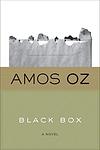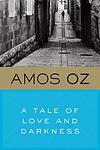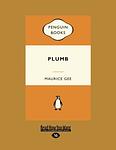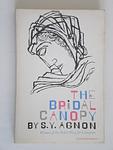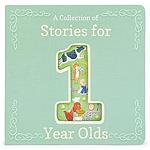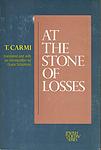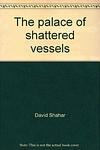The Greatest New Zealander, Israeli Books of All Time
Click to learn how this list is calculated.
This list represents a comprehensive and trusted collection of the greatest books. Developed through a specialized algorithm, it brings together 300 'best of' book lists to form a definitive guide to the world's most acclaimed books. For those interested in how these books are chosen, additional details can be found on the rankings page.
Genres
Countries
Date Range
Reading Statistics
Click the button below to see how many of these books you've read!
Download
If you're interested in downloading this list as a CSV file for use in a spreadsheet application, you can easily do so by clicking the button below. Please note that to ensure a manageable file size and faster download, the CSV will include details for only the first 500 books.
Download-
1. The Bone People by Keri Hulme
"The Bone People" is a complex, emotional novel that explores the lives of three characters - a reclusive artist, a young mute boy, and his adoptive father - in New Zealand. The narrative delves into themes such as Maori culture, love, violence, and isolation while showcasing the struggle of these individuals as they try to form a family unit despite their personal traumas and societal pressures. The book's unique blend of prose and poetry, along with its blend of English and Maori language, adds to its depth and richness.
-
2. The Book of Job by Unknown
"The Book of Job" is a profound biblical narrative that explores the themes of faith, suffering, and divine justice. It tells the story of Job, a prosperous and righteous man who experiences immense suffering as he loses his wealth, children, and health. Despite his trials, Job maintains his faith in God, engaging in intense dialogues about human suffering and divine justice. The story concludes with God restoring Job's fortunes and blessing him more abundantly than before, demonstrating the inscrutable nature of divine wisdom and the rewards of unwavering faith.
-
3. Sapiens: A Brief History of Humankind by Yuval Noah Harari
This book provides a comprehensive exploration of the history of the human species, tracing back from the earliest forms of Homo Sapiens to the modern day. It delves into evolutionary biology, the development of cultures and societies, and the rise of major ideologies and technologies. The book also discusses the future of the species, posing thought-provoking questions about our roles and responsibilities in a rapidly changing world.
-
4. Faces In The Water by Janet Frame
"Faces in the Water" is a chilling exploration of mental illness, based on the author's own experiences in psychiatric hospitals. The protagonist is a woman who is institutionalized after a suicide attempt and suffers through the dehumanizing treatment of the era, including electroshock therapy. The narrative is a surreal and fragmented reflection of her mental state, as she grapples with her sanity and the inhumane conditions of her confinement. The novel serves as a powerful critique of the mental health system and the societal attitudes towards mental illness in the mid-20th century.
-
5. Thinking, Fast and Slow by Daniel Kahneman
The book delves into the two systems that drive the way we think—System 1, which is fast and intuitive, and System 2, which is slow and deliberate. The author, a Nobel laureate, explores how these systems shape our judgments and decision-making. He presents several groundbreaking experiments that have shaped our understanding of human thought, revealing where we can trust our intuitions and how we can tap into the benefits of slow thinking. The book also discusses how our cognitive biases often lead to errors in judgment and affect our decision-making processes.
-
6. Black Box by Amos Oz
"Black Box" is a novel that explores the complex dynamics of a broken family. The story revolves around a divorced couple who are forced to reconnect after their son begins to display troubling behavior. The husband, a stern and disciplined judge, and the wife, a free-spirited Holocaust survivor, must navigate their personal differences, past hurts, and current relationships to address their son's issues. The book is written in the form of letters, revealing the characters' inner thoughts and struggles, making it a profound exploration of human relationships, regret, and reconciliation.
-
7. A Man Lay Dead by Ngaio Marsh
"A Man Lay Dead" is a captivating murder mystery set in a country house, where a group of guests gather for a weekend of games and entertainment. When a harmless game of murder turns into a real-life crime, Inspector Alleyn is called in to solve the case. As he delves into the lives and secrets of the eccentric characters, he uncovers a web of deceit, jealousy, and hidden motives. With a clever plot, intriguing characters, and a touch of humor, this book keeps readers guessing until the final twist.
-
8. A Tale of Love and Darkness by Amos Oz
This book is a poignant memoir that explores the complexities of love, darkness, loss, and the endurance of the human spirit. Set against the backdrop of the end of the British Mandate for Palestine and the early years of the State of Israel, the author recounts his childhood in Jerusalem, the suicide of his mother, and his path to becoming a writer. The narrative is both a personal account and a portrait of a society in turmoil, providing a profound exploration of the individual and collective psyche.
-
9. Plumb by Maurice Gee
In "Plumb" by Maurice Gee, readers are introduced to a small New Zealand town called Waimaru, where a tragic accident occurs, leaving a young boy dead. The aftermath of this event reveals the dark secrets and hidden tensions within the community, as the lives of various characters intertwine and unravel. With beautifully crafted prose and a keen exploration of human nature, Gee delves into themes of guilt, loss, and the complexities of human relationships, creating a gripping and thought-provoking narrative.
-
10. The Bridal Canopy by Shmuel Yosef Agnon
The novel is a rich tapestry of 19th-century Jewish life in Eastern Europe, following the picaresque journey of Reb Yudel, a poor, pious Jew, as he travels through Galician villages in search of suitable husbands for his three daughters. Along the way, he encounters a vivid cast of characters and experiences a series of adventures that reveal the customs, struggles, and faith of the Jewish communities of that era. The narrative, imbued with religious and folkloric elements, offers a blend of humor, irony, and profound insight into human nature and divine providence, painting a nostalgic picture of a bygone world.
-
11. Badjelly The Witch by Spike Milligan
The book is a whimsical children's story that follows the adventures of siblings Tim and Rose as they search for their lost cow, Lucy. Their quest leads them into an enchanted forest where they encounter a host of magical creatures, including giants, a fairy, and an evil witch named Badjelly who can turn people into sausages with her magic wand. With courage and the help of their new fantastical friends, the children must outwit Badjelly and rescue their beloved cow, embarking on a journey filled with humor, whimsy, and the triumph of good over evil.
-
12. Twilight And Other Stories by Shulamith Hareven
"Twilight and Other Stories" is a collection of evocative short stories that delve into the complexities of human experience, exploring themes of love, loss, identity, and the passage of time. The narratives, set against diverse backdrops, from ancient times to modern-day Israel, weave together a tapestry of characters each confronting their own moral dilemmas and emotional struggles. With a poetic and introspective style, the stories in this anthology invite readers to reflect on the subtle shades of humanity and the profound impact of seemingly ordinary moments.
-
13. Homo Deus by Yuval Noah Harari
This book explores the future of humankind, building upon the foundation laid by its exploration of our past. It delves into the potential paths humanity might take as technological advancements and artificial intelligence begin to challenge the very essence of what it means to be human. The narrative posits that as we conquer famine, war, and plague, our focus shifts towards achieving happiness, immortality, and divinity, raising profound questions about our future roles and values in a world where machines and algorithms might outperform us in thinking, making decisions, and understanding the universe. Through a blend of philosophy, history, and future-gazing, the book invites readers to consider the implications of such a future, both exhilarating and daunting.
-
14. The Luminaries by Eleanor Catton
Set during the New Zealand Gold Rush of the 19th century, this novel follows Walter Moody, a prospector who stumbles upon a secret meeting of twelve local men who are trying to solve a series of unsolved crimes. As the story unfolds, it becomes clear that the crimes, which include a rich man's disappearance, a prostitute's attempted suicide, and a huge fortune found in a drunkard's cottage, are all interconnected. The novel's complex narrative structure, which uses astrology to organize its characters and events, adds another layer of intrigue to the story.
-
15. My Life by Golda Meir
The book is an autobiography of one of the most influential women in modern history, who rose from the poverty of her childhood in Russia and Milwaukee to become the Prime Minister of Israel. It offers a compelling account of her role in the founding of the state of Israel and its early years, providing personal insights into the myriad political and military challenges the nascent country faced. The narrative is interwoven with her own life story, including her experiences with immigration, education, and her rise through the ranks of the labor movement and political leadership, all set against the backdrop of the 20th century's tumultuous events leading up to and following the establishment of Israel.
-
16. The Short Stories by Katherine Mansfield
The book is a collection of short stories that delve into the complexities of human relationships and emotions, often focusing on moments of epiphany in the lives of ordinary people. Set primarily in the early 20th century, the stories explore themes such as love, loss, and the search for meaning amidst the mundane. The author's keen observations and subtle wit bring to life a range of characters, from lonely spinsters to disillusioned couples, each portrayed with a deep sense of empathy and psychological insight. Through her masterful use of language and narrative structure, the author captures the fleeting impressions and nuances of everyday existence, leaving a lasting impact on the reader.
-
17. Twenty One Stories by Shmuel Yosef Agnon
"Twenty One Stories" is a collection of short stories that delve into the complexities of Jewish life, blending elements of folklore, religious tradition, and modernity. The tales, set against the backdrop of Eastern Europe and the Land of Israel, explore themes of faith, identity, exile, and redemption. The author's rich prose and deep understanding of human nature illuminate the struggles and aspirations of his characters, offering a window into the soul of a people and the cultural crossroads at which they stand. Through a tapestry of narratives, the book captures the essence of a bygone era while reflecting timeless truths about the human condition.
-
18. Shirot Bialik by Hayyim Nahman Bialik
The book is a collection of poems by one of the most renowned Hebrew poets, reflecting a deep engagement with the Jewish experience and a masterful command of language. The poems range from personal reflections to nationalistic themes, exploring love, nature, and the struggles of the Jewish people. The poet's work is characterized by its emotional depth, lyrical beauty, and the use of traditional Jewish texts, which he reinterprets to address the contemporary issues of his time. His writing has left a lasting impact on Hebrew literature and Jewish culture, cementing his status as a national poet.
-
19. At The Stone Of Losses by T. Carmi
"At The Stone Of Losses" is a poetic exploration of memory, grief, and the enduring power of language. The work delves into the depths of personal and collective history, intertwining the author's own experiences with broader historical and mythological narratives. Through a tapestry of vivid imagery and emotive verse, the poet grapples with the themes of displacement, identity, and the search for meaning amidst the ruins of the past. The collection serves as a meditation on the ways in which we confront and commemorate loss, ultimately offering a poignant reflection on the human condition and our quest for understanding in a fragmented world.
-
20. Selected Poetry by Yehuda Amichai
The book is a compilation of poems by one of the most prominent Israeli poets, renowned for his innovative and evocative exploration of love, war, and the complexities of Jewish identity. The collection spans several decades of the poet's work, reflecting on personal and historical experiences while weaving a rich tapestry of images and emotions. The poet's language is both accessible and profound, often drawing from the well of biblical and modern Israeli life to create a body of work that resonates with universal themes of time, memory, and the human condition.
-
21. In The Heart Of The Seas by Shmuel Yosef Agnon
The book is a historical novella that follows a group of devout Jews from the Old Yishuv in Jerusalem as they embark on a perilous journey to the land of Israel in the late 19th century. Through a blend of myth, legend, and reality, the narrative explores themes of faith, longing, and the hardships of travel as the characters confront the trials of the sea and their own spiritual quests. The story delves into the lives and aspirations of these pilgrims, who are driven by a deep yearning to return to their ancestral homeland and the holy city of Jerusalem, reflecting on the enduring connection between a people and their sacred geography.
-
22. Poems Of Nathan Zach by Nathan Zach
The book is a collection of poetry by an influential modern Hebrew poet, known for his innovative and modernist approach to language and form. The poems explore themes of identity, existentialism, and the human condition, often challenging traditional poetic structures and expectations. The poet's work is characterized by its lyrical intensity, intellectual depth, and a profound engagement with the cultural and historical landscape of his time. Through his verse, readers are invited to contemplate the complexities of individual experience within the broader context of collective memory and societal change.
-
23. The Palace Of Shattered Vessels by David Shahar
The book is a rich tapestry of life in Jerusalem during the British Mandate period, weaving together the stories of a diverse cast of characters, from a young Jewish boy to an aging British consul. Set against the backdrop of a city steeped in history and conflict, the narrative explores themes of love, loss, and the complexities of human relationships. As the characters' lives intersect in unexpected ways, the novel delves into the cultural and political tensions of the time, painting a vivid portrait of a society on the brink of monumental change. Through its lyrical prose and intricate storytelling, the book captures the essence of Jerusalem's enduring mystique and the fragile beauty of human experience.
-
24. The Travels And Adventures Of Benjamin The Third by Mendele Mokher Seforim
The book is a satirical novel that follows the whimsical journey of a simple, dreamy Jewish villager, Benjamin, who is inspired by "Don Quixote" and sets out on a quest for adventure and discovery. Along with his loyal companion, they embark on a series of misadventures, seeking legendary rivers and wealth, but instead encounter the harsh realities of the Jewish existence in the Russian Empire. The narrative humorously critiques the social and political conditions of the time, while also exploring themes of escapism, the power of imagination, and the human condition.
-
25. Arabesques by Anton Shammas
"Arabesques" is a novel that intricately blends autobiography, fiction, and historical narrative to explore the complexities of identity and heritage. Set primarily in the Arab village of Fassuta in northern Israel, the story delves into the life of the narrator and his extended family, tracing their roots and experiences across generations and borders. Through a tapestry of memories, stories, and shifting perspectives, the novel examines themes of displacement, belonging, and the cultural and political tensions in the Middle East, all while challenging the boundaries between history and memory, and truth and fiction.
Reading Statistics
Click the button below to see how many of these books you've read!
Download
If you're interested in downloading this list as a CSV file for use in a spreadsheet application, you can easily do so by clicking the button below. Please note that to ensure a manageable file size and faster download, the CSV will include details for only the first 500 books.
Download




